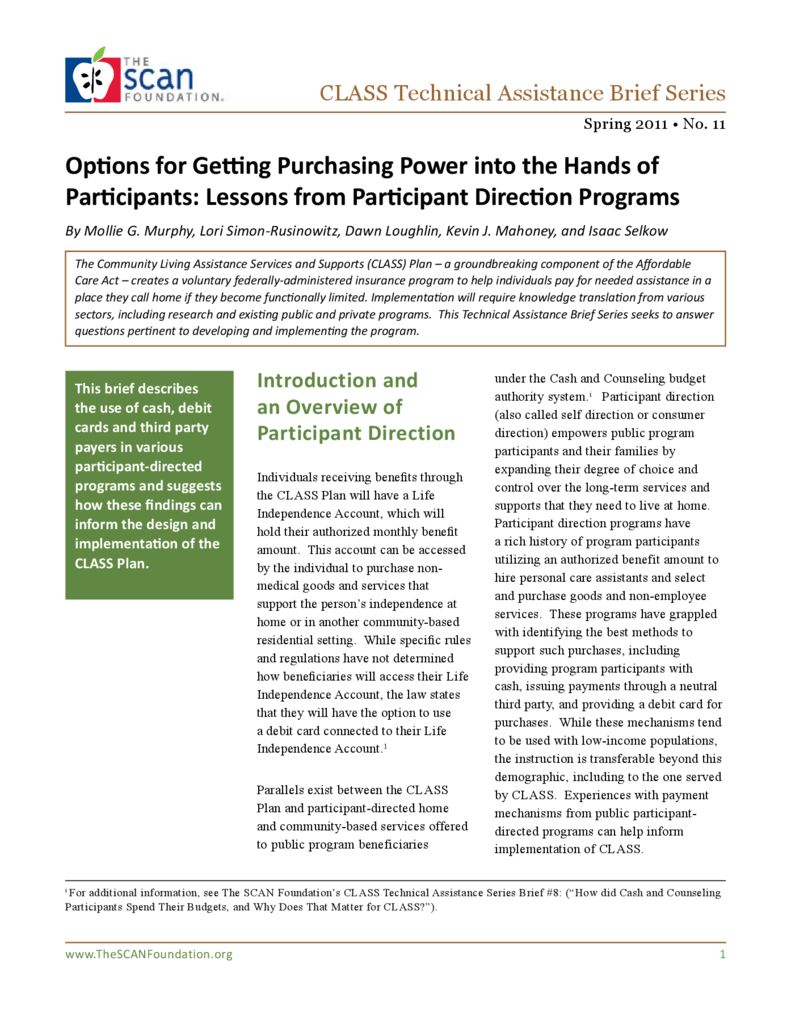Options for Getting Purchasing Power into the Hands of Participants: Lessons from Participant Direction Programs
summary
This policy brief describes the use of cash, debit cards, and third-party payers in various participant-directed programs and suggests how these findings can inform the design and implementation of the CLASS Plan.
Date Updated: 04/06/2011Individuals receiving benefits through the CLASS Plan will have a Life Independence Account, which will hold their authorized monthly benefit amount. This account can be accessed by the individual to purchase nonmedical goods and services that support the person’s independence at home or in another community-based residential setting. While specific rules and regulations have not determined how beneficiaries will access their Life Independence Account, the law states that they will have the option to use a debit card connected to their Life Independence Account…
Download the publication for all visuals and complete references.
Continue Reading
This policy brief provides an introduction to The SCAN Foundation’s CLASS Technical Assistance Brief Series, which explores many of the critical issues to be considered for successfully implementing CLASS.
This policy brief describes the broad needs of individuals with disability and the wide range of supportive and environmental solutions that can allow for the most independent living possible. It suggests how findings on social and environmental supports for individuals with disability can inform implementation of CLASS.
This policy brief provides background on the historical development of benefit eligibility triggers in the private long-term care insurance market. Understanding how these triggers came into being can provide important information to those charged with implementing the CLASS Plan.


